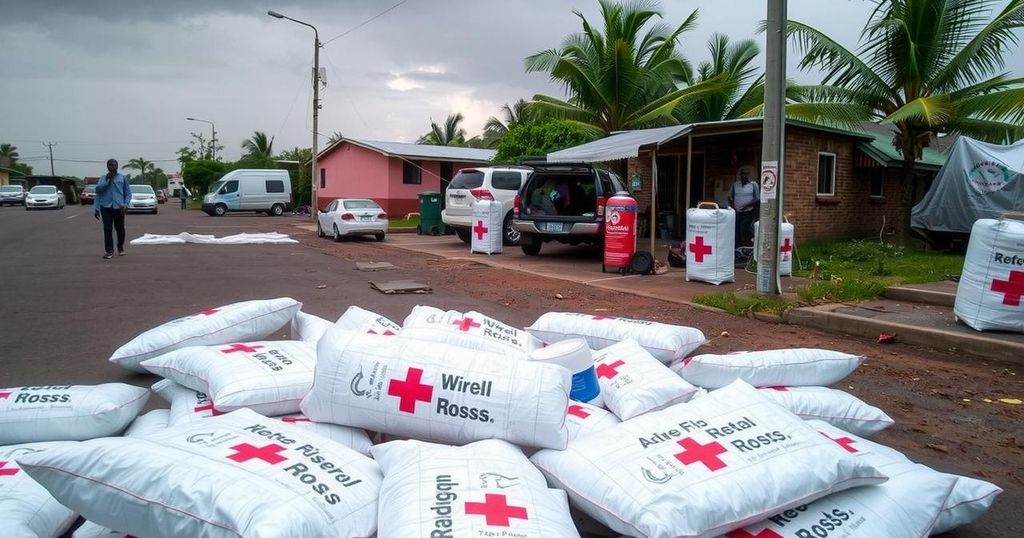Red Cross Mobilizes Response to Cyclone Chido in Mozambique and Beyond

Cyclone Chido made landfall in Mozambique on 15 December, causing extensive damage and displacing thousands. About 622,000 people are affected in Mozambique alone, with significant impacts also noted in Comoros, Malawi, and Mayotte. The Red Cross has launched an Emergency Appeal to raise 10 million Swiss francs to assist 100,000 people and strengthen future storm preparedness for vulnerable communities.
On 15 December, the South-West Indian Ocean was struck by tropical Cyclone Chido, which made landfall in Mozambique, resulting in considerable devastation across the region. The cyclone unleashed heavy rains and powerful winds, impacting Madagascar, Comoros, Mozambique, Mayotte, and Malawi, leading to loss of life and extensive damage to homes and infrastructures. Thousands have been displaced as a direct consequence of the storm’s fury. Preliminary assessments indicate that approximately 622,000 individuals in Mozambique have been affected, with more than 130,000 shelters reported as damaged or destroyed. In Comoros, cyclone Chido’s passage has severely impacted over 64,000 residents, affecting homes, schools, and agricultural land, while Malawi has seen over 45,000 individuals affected. In Mayotte, which is a French overseas territory, about 70% of the population has suffered, with over 35,000 houses reported destroyed.
In response to this devastating incident, Red Cross teams have mobilized on the ground to provide support and participate in rescue efforts for the affected communities. The International Federation of Red Cross and Red Crescent Societies (IFRC) has initiated an Emergency Appeal aimed at raising 10 million Swiss francs to provide holistic assistance to 100,000 people impacted in Mozambique, Madagascar, Comoros, and Malawi. This comprehensive response encompasses integrated support, including cash aid, shelter, healthcare, and assistance aimed at sustaining livelihoods. Key activities identified include the distribution of essential household items at emergency shelters, cash distributions, provision of water, sanitation, health services, and the implementation of safeguarding protection strategies.
Apart from immediate relief efforts, the Emergency Appeal also aspires to bolster community preparedness for the overarching cyclone season, with the goal of reaching 500,000 people residing in at-risk areas. Planned initiatives include the enhancement of early warning systems, strategic pre-positioning of emergency supplies, and training of volunteers in disaster preparedness and response protocols.
The South-West Indian Ocean tropical cyclone season is a recurring and hazardous phenomenon that poses significant threats to communities in affected regions. Cyclone Chido’s impact has highlighted the vulnerability of countries such as Mozambique, Madagascar, Comoros, Malawi, and Mayotte, which are prone to severe weather events. The Red Cross has a long-standing commitment to humanitarian assistance and disaster response, particularly in the wake of natural disasters that devastate communities and disrupt lives. Assessments and response efforts are crucial in managing the immediate and long-term impacts of such catastrophic events.
In summary, the response to Cyclone Chido illustrates the ongoing challenges faced by communities in the South-West Indian Ocean during the cyclone season. Significant devastation has been recorded across several nations, leading to displacements and critical needs among the affected populations. The proactive measures initiated by the Red Cross, including the Emergency Appeal, aim to provide immediate relief and enhance community preparedness for future storms, thus fostering resilience in vulnerable regions.
Original Source: reliefweb.int








